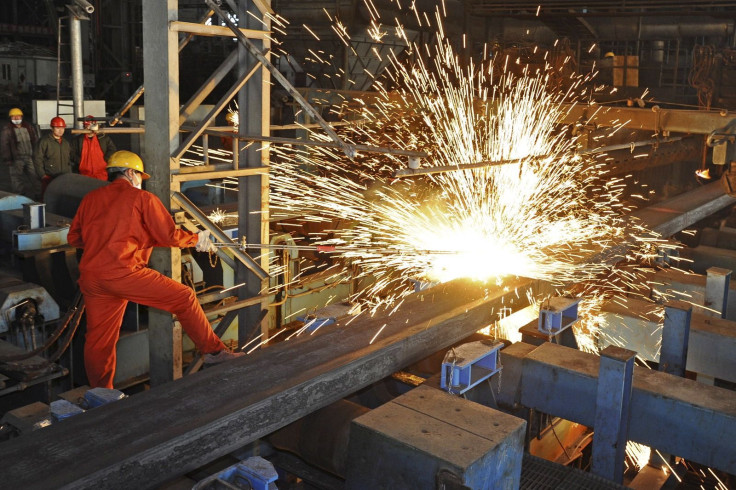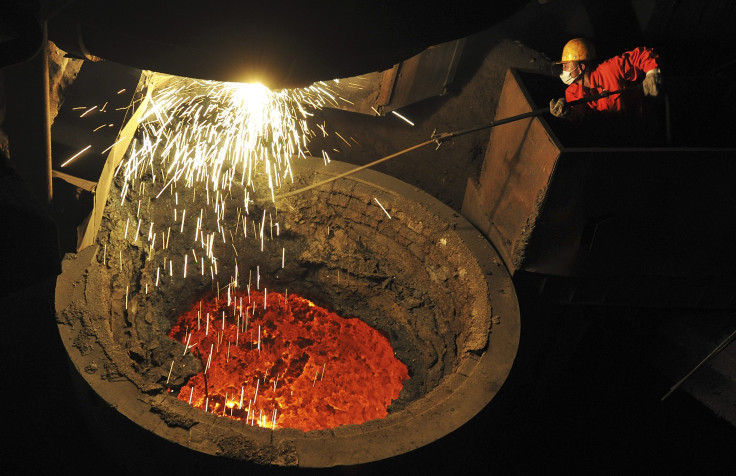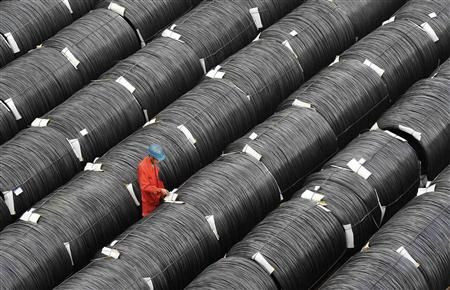Chinese Steelmaker Defaults On Debt Payment Amid Growing Pressure On Industries Struggling With Overcapacity

SHANGHAI — A state-run Chinese steel company has defaulted on a debt payment, just days after its chairman died in an apparent suicide. The default by Dongbei Steel Group on a corporate debt of some 852 million yuan (around $130 million) is the latest sign of the challenges for China’s economy in the face of slowing growth, with corporate debt a major problem. But analysts said it might also signal a new willingness by local governments to allow firms they control in industries suffering from overcapacity to face market pressures, rather than simply bailing them out.
A note posted on the website of the Shanghai Clearing House said that Dongbei, a company based in the northeastern city of Dalian and majority-owned by the government of Liaoning province, could not repay creditors and was likely to miss payment on a further debt of some $150 million next week.
The announcement came just days after the death of the company’s chairman, Yang Hua. China Development Bank, chief underwriter of the company’s debt, announced on the same website that Yang’s death was “accidental,” but some media reports have described it as suicide.
The default comes soon after the Chinese government announced major plans to weed out overcapacity in underperforming industries, after China’s growth slowed to its slackest pace in a quarter century last year, falling from 7.3 percent in 2014 to 6.9 percent last year. While slumping global demand has hit exports, producers of commodities like iron, steel and cement have been particularly hard-hit by a slowdown in China’s domestic construction industry. The government recently announced plans to lay off 400,000 workers from the steel industries in the coming years, as well as an estimated million in the coal sector, and some five or six million in other industries.
Dongbei’s default is reported to be the eighth credit default in China’s debt market so far this year, with other companies affected, including major meat processor Nanjing Yurun and iron ore company Zibo Hongda Mining, the South China Morning Post (SCMP) reported.

Analysts said the impact on China’s bond market as a whole was expected to be limited.
But the SCMP said that while defaults by private companies and centrally controlled state enterprises were relatively common, it was rare for local government-controlled companies to be allowed to default on debt — as they are often major employers and seen by local authorities as helping contribute to social stability.
The paper noted that while creditor China Development Bank said it had “made our best effort” to help the company, the state-run investment bank was actually seen as “having access to limitless funds.” Yet rather than propping up the steelmaker, it had held talks with the local government and expressed its determination to maintain pressure on Dongbei to repay loans.
Dongbei also said it had tried to raise funds from other sources, and to shed inventory, but without success.

Experts say China's state banks have become less willing to lend money to industries such as coal or steel over the past year, a trend that may be linked to the Chinese government’s pledge, in its recent work report for 2016, to reduce overcapacity in poorly performing industries. The European Union Chamber of Commerce in China said recently that such overcapacity resulted largely from easy access to loans for state companies in the years following the introduction of a government stimulus package after the 2008 financial crisis.
But observers are still worried about the level of bad debt in China’s banking system. Central bank governor Zhou Xiaochuan acknowledged this month that the issue was a potential risk — though other officials and some economists argue it is still at a manageable level.
China’s government is hoping to move away from a dependence on manufacturing and heavy industry, and encourage sectors such as retail and services, which continue to grow at a faster pace. The government says it has set aside some $15.4 billion this year to cover lay-offs from loss-making state industries, and is also expected to increase infrastructure investment to help boost the economy and achieve its target of a growth rate of at least 6.5 percent this year.
There have been some positive signs, with industrial profits in the first two months of the year rising 4.8 percent year-on-year, after falling for seven straight months — and compared to a fall of 4.7 percent in December. Observers ascribed this, in part, to a rebound in China’s property market.
But analysts say that dealing with the fallout from problems at companies like Dongbei steel could still be a painful process. Last week, financial magazine Caixin reported that Tianjin-based Bohai Steel Group Co. Ltd. may be unable to make full repayment on its own debt in the near future.
© Copyright IBTimes 2024. All rights reserved.





















